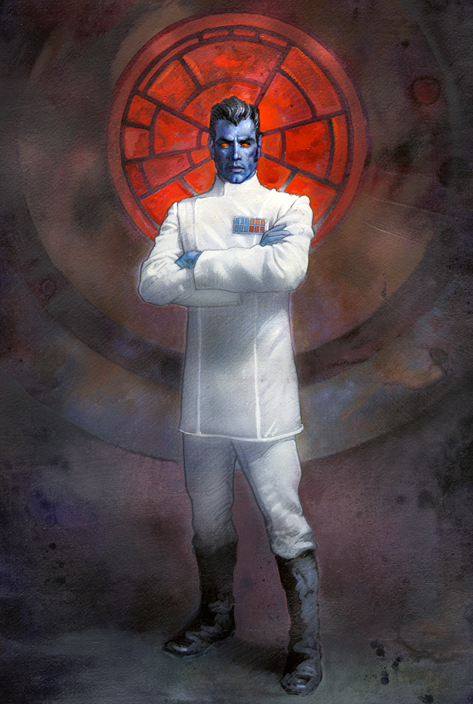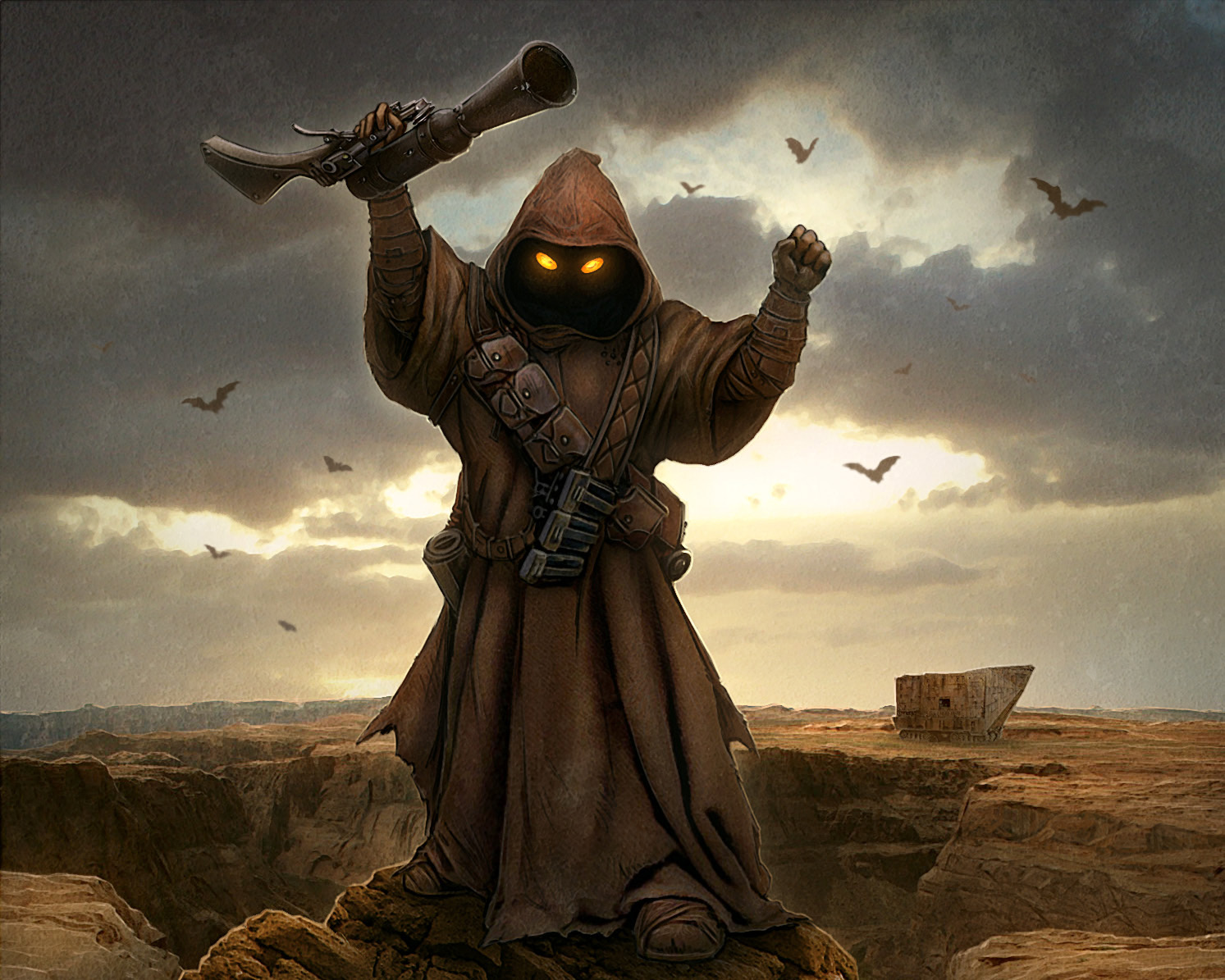A warlord was a military rank who held civil authority over a region. It was also used to describe the leaders of certain alien clans. The term warlord was prominently used to describe leaders of Imperial splinter factions during the later parts of the Galactic Civil War.

Grand Admiral Thrawn, Warlord of the Empire.
Under the Galactic Empire, the ceremonial title of Warlord of the Empire was bestowed upon a select group of senior military commanders, primarily Grand Admirals and Grand Moffs, by Emperor Palpatine. An honorary rank, Warlords of the Empire did not have an assigned specific code cylinder or rank plaque.
After the Battle of Endor, the term "warlord" came to be applied rather indiscriminately to surviving leaders of the Imperial military and political apparatus. This usage of the term is generally associated with the fragmentation of Imperial space into mutually hostile localized despotates, but in reality, the situation was more complex than is often realized. Warlords were also sometimes referred to as "jarheads."
One of the three leading "warlords", Treuten Teradoc, remained nominally loyal to Imperial Center for more than two years after Endor and, even after this date, Teradoc continued to use only his legitimate title of High Admiral, albeit now claiming authority over an Oversector in the Mid Rim that seems to have been his own invention. Two other prominent warlords, Harrsk and Zsinj, both used the title of Warlord in preference to their rank as Admirals, but while Harrsk's style of Supreme Warlord was his own invention, Zsinj had certainly been granted the title of Warlord legitimately before Endor, for his fratricidal campaign against his piratical mother in the early days of the Empire.
The term "warlord" broadly came to denote those fleet commanders who rallied, and sometimes forcibly seized control of, Imperial ships and troop formations after Endor; in this context, the term was used by members of the Cabal, approximately six months after Endor, with reference to Harrsk and Teradoc, while Teradoc at least was still nominally a loyalist. Mon Mothma, one of the leaders of the Rebel Alliance, had ominously warned of the risk of any commander having a Star Destroyer becoming a warlord shortly after the Battle of Endor. However, within the New Republic, the title of Warlord could be extended to include any surviving Imperial leader, military or civilian, including those like Ysanne Isard who dominated what remained of the New Order's legitimate administrative apparatus. This usage may merely represent propagandist attempts to undermine any sense of legitimacy these leaders still held, but it also shows how generic the usage of the term was.
Breakaway warlords generally had two different motivations for leaving the Empire. The primary reason seemed to be to gain more personal power. A second reason was often that they felt that they could better resist the New Republic on their own than with the fragmenting Empire. Most breakaway warlords were concentrated in the Mid Rim, with a few exploiting the chaos in the Expansion Region and the Inner Rim. They often concentrated their resources in systems they formerly governed or patrolled, where they were already familiar with the populace and their surroundings.

A Jawa warlord.
The title of Warlord was also used to describe military leaders of factions independent of the Empire, such as leaders of different Separatist holdouts or the Drackmarian warlord Omogg. In this context, it often referred to alien military freebooters who seized control of Rimward worlds, such as Qymaen jai Sheelal, but it was also used by military chieftains among the Human population of Brentaal IV, like Shogar Tok during the Clone Wars. Another warlord is the one that seizes control on Kariek.